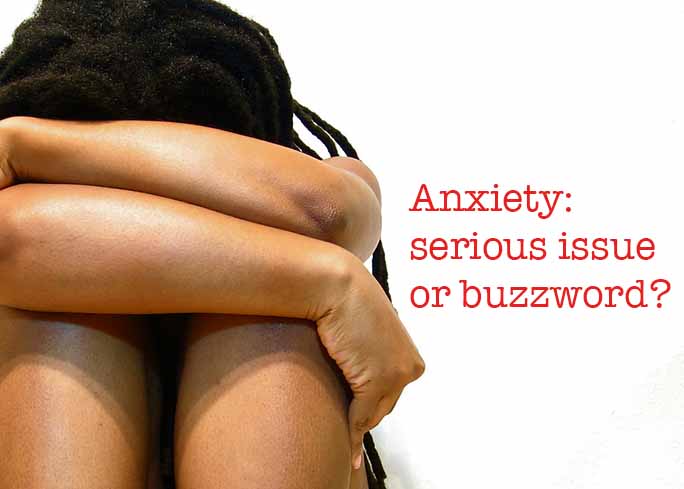Anxiety: serious issue or buzzword?
Editorial
Over the last couple of years, students joking about anxiety on social media has become the norm, but how many of them are serious about it? Based on studies around the world, students’ anxiety levels have risen over the last decade, but the question still remains: why? What’s changed not only here in Arlington, but all over the world, too? These may be impossible questions to answer, but they are important ones. Anxiety has become a serious issue among teens, and talking about it is one of the most important things you can do to help.
Google defines anxiety as being “characterized by feelings of worry, anxiety, or fears that are strong enough to interfere with one’s daily activities”. Because of this umbrella definition, it is a word that gets thrown around quite often by those not understanding that it is considered a mental illness. Most people do not mean that they have panic attacks or OCD when they say that they suffer from anxiety, but rather just stress over homework or tests. Normally, it’s not a big deal for a student to say that they have anxiety over school, but when people jump on the bandwagon to say they suffer from it, it becomes wrong and offensive to those diagnosed with it.
Social media could be to blame for a large portion of this. If you’ve been on Twitter recently, you may have noticed memes made by people about their anxiety or depression that get thousands of retweets, but at what point did it become just a trend instead of people actually suffering? It’s hard to say how this trend got started, but it’s definitely gotten more popular in recent years.
Sites like Twitter and Instagram allowing access to posts like these could be a reason why anxiety has become such a buzzword with teens across the globe. It’s quite possible that it has encouraged students to give in to their anxiety rather than get help like they might have otherwise. Although it is impossible to stop these kinds of posts from going around, it should be noted that easier access to help could alleviate the pain of students suffering from this mental illness.
Students in need of anxiety help are always welcome at the nurse’s office. Nurse Sarah Heroman provides things like crackers, stress balls, and “anything to calm (the student) down”. Whether it be for reasons related to home or school (although she says school only triggers anxiety, and doesn’t cause it), she always does her best looking out for students in need. Students come in all the time, most not diagnosed with anxiety, looking for help; however, she does recommend professional help occasionally.
Although the word does get thrown around meaninglessly a lot, the uprising of students truly suffering from anxiety is an issue that needs to be talked about. It is important to get professional help if necessary, and to not listen to social media-it is not cool or trendy to suffer from this mental illness, and should never be considered as such.

